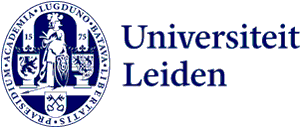351 search results for “gene theory” in the Staff website
-
live longer? Leiden physicist makes discovery in protective layer in genes
With the aid of physics and a minuscule magnet, researchers have discovered a new structure of telomeric DNA. Telomeres are sometimes seen as the key to living longer. They protect genes from damage but get a bit shorter each time a cell divides. If they become too short, the cell dies. The new discovery…
-
Advocating for gene therapies for rare diseases
‘If we don’t start talking about this, who else will?’ This is what Arjan Lankester, paediatrician/immunologist at the Leiden University Medical Center (LUMC) and Professor of Paediatrics, thought when it seemed that various extremely effective gene therapies for rare diseases would no longer be available…
-
 Floske Spieksma
Floske SpieksmaFaculty of Science
-
 Luca Avena
Luca AvenaFaculty of Science
-
 Michael Keane
Michael KeaneFaculty of Science
-
 Evgeny Verbitskiy
Evgeny VerbitskiyFaculty of Science
-
 Evert Jan van Leeuwen
Evert Jan van LeeuwenFaculty of Humanities
-
 Charlene Kalle
Charlene KalleFaculty of Science
-
 Frank den Hollander
Frank den HollanderFaculty of Science
-
Sunni constitutional theory in light of an early hadith about obedience
Lecture
-
 Georgios-Evgenios Douliakas
Georgios-Evgenios DouliakasFaculty of Humanities
-
Case (mis-)matches in ATB-movement and implications for theories of sharing constructions
Lecture, Com(parative) Syn(tax) Series
-
 Ronald Cramer
Ronald CramerFaculty of Science
-
 Peter Bruin
Peter BruinFaculty of Science
-
 Megumi Kitagawa
Megumi KitagawaSocial & Behavioural Sciences
-
Mariëlle Linting
Social & Behavioural Sciences
-
 David Holmes
David HolmesFaculty of Science
-
 Rusydi Makarim
Rusydi MakarimFaculty of Science
-
 Marco Streng
Marco StrengFaculty of Science
-
 Martin Bright
Martin BrightFaculty of Science
-
 Peter Stevenhagen
Peter StevenhagenFaculty of Science
-
 Jan-Hendrik Evertse
Jan-Hendrik EvertseFaculty of Science
-
 M Bhargava
M BhargavaFaculty of Science
-
 Robin de Jong
Robin de JongFaculty of Science
-
 Bart de Smit
Bart de SmitFaculty of Science
-
 Sten Hagen
Sten HagenFaculty of Science
-
 Ronald van Luijk
Ronald van LuijkFaculty of Science
-
 Hendrik Lenstra
Hendrik LenstraFaculty of Science
-
 Merijn de Bakker
Merijn de BakkerFaculty of Science
-
Major international study links genes to brain structural changes over time
There seem to be genes that influence how our brains develop over time. A large international consortium has discovered this with an extensive study. The results of the study were recently published in Nature Neuroscience.
-
 Kyra Alberts
Kyra AlbertsFaculty of Humanities
-
 Zhong Chua
Zhong ChuaFaculty of Humanities
-
LUMC will administer first Dutch stem cell gene therapy to patients
Researchers and clinicians at Leiden University Medical Centre (LUMC) are about to begin a milestone clinical study. It will be the first time a stem cell gene therapy developed in the Netherlands is used in a clinic. The therapy will be used to treat children with SCID, a rare disorder where children…
-
 Koenraad Schalm
Koenraad SchalmFaculty of Science
-
First patient in the Netherlands successfully treated with stem cell gene therapy
Researchers from the Leiden University Medical Center (LUMC) have successfully used stem cell gene therapy to treat a baby with the severe congenital immune disorder SCID. An important milestone: it is the first time stem cell gene therapy of Dutch origin has been administered to a patient, and also…
-
Caught in living cells: how bacteria regulate their genes to defend themselves
For the first time, it was shown in living cells how the bacterium E. coli regulates genes that help it survive in a new environment. Biochemist Fatema Zahra Rashid managed to do this using a technique she fine-tuned. Her research into changes in 3-dimensional chromosome structure offers clues for ways…
-
René van der Veer
Social & Behavioural Sciences
-
 Ernst van Alphen
Ernst van AlphenFaculty of Humanities
-
 Francisca Jungslager
Francisca JungslagerSocial & Behavioural Sciences
-
 Richard Gill
Richard GillFaculty of Science
-
 Chenyu Shi
Chenyu ShiFaculty of Science
-
 Carlos Roos Muñoz
Carlos Roos MuñozFaculty of Humanities
-
 Arash Mohammadavvali
Arash MohammadavvaliFaculty of Humanities
-
ERC-grant for Sebastian Pomplun to cure disease by controlling gene expression with synthetic transcription factors
Sebastian Pomplun receives an ERC starting grant of 1.85 million Euros in five years. He wants to develop synthetic transcription factors that can enter cells and activate or deactivate specific genes. For example to disrupt cancer-related processes or to trigger the production of an important missing…
-
 Nidesh Lawtoo
Nidesh LawtooFaculty of Humanities
-
 Rob Tijdeman
Rob TijdemanFaculty of Science
-
 Paul Hooykaas
Paul HooykaasFaculty of Science
-
 Hendrik Jacob Roelof Kaptein
Hendrik Jacob Roelof KapteinFaculty of Law
-
 Guillermo Guerrero
Guillermo GuerreroFaculty of Science
-
 Isabel Nunez Santiago
Isabel Nunez SantiagoFaculty of Science
